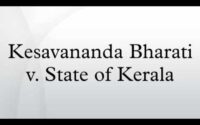Metropolitan Properties Co (FGC) Ltd v Lannon (1969 1 B577)
Can Prejudice Surpass Principles of Natural Justice?
The Bench:
Lord Denning
Edmund Davis (LJ)
Parties to the Suit:
Freshwater Group of Companies (Petitioner) here referred to as FGC
Mr.John Lannon and others (Respondent)
Cases Referred:
R v Sussex
R v Barnsley County Borough Licensing
R v Camborne
Principles Involved:
Justice should both be done and be manifestly seen to be done
Principles of Natural justice – Rule against bias
Tests of Reasonable suspicion and Real likelihood of bias
Issues to be Determined:
Whether Mr. Lannon should have sat in the Rent Assessment Committee?
Whether Mr. Lannon had any direct pecuniary interest in the subject matter of the suit?
Whether Mr. Lannon was biased towards one of the parties to the suit?
Facts of the Case:
A metropolitan township Oakwood Court was purchased by the petitioner, FGC, who post purchase, proposed to increase the rent of the flats. After which some of the tenants applied to the rent officer to register a ‘fair rent’ under the Rent Act 1965. The rent officer fixed a rent that he ought to be a ‘fair rent’. The Petitioner, however, unsatisfied, appealed to the rent assessment committee against the decision. The committee made drastic reductions in the rents. They put the fair rent as far lower than the contractual rents, in fact lower than any of the experts stated, and lower, indeed, than the tenants themselves had offered. Aggrieved, the petitioner took the case to the Divisional Court and made a complaint against the respondent, Mr John Lannon, the chairman of the assessment committee. The petitioner alleged that the respondent was disqualified as he was a solicitor living in another block of flats ‘The Regency Lodge’ owned by the FGC where his father was the tenant and was in dispute with the FGC. The petitioner further alleged that the son was assisting and advising his father in the matter and on account of this,ought not to have sat on the hearing as he could not have been delivered a fair and unbiased decision.
Arguments Advanced:
On Jan. 13, 1967, Mr John Lannon assisted his father in writing that letter in his dispute with the Petitioner, still on Jan. 19, 1967, he sat as chairman of the rent assessment committee to hear an appeal by that very group.
On Apr. 26, 1967, the committee gave their decision and fixed the rents for Oakwood Court lower than anyone had submitted to them
And, therefore, it was contented that this has been a biased decision in which the principle of natural justice has been violated by the respondent.
The Code:
A person can be disqualified from sitting in a judicial capacity on anyone of two grounds:
A direct pecuniary interest in the subject matter or
Bias in the favour of any of the parties.
Findings of the Divisional Court:
It was acknowledged that Mr John Lannon did not actually have any direct pecuniary interest in the suit, the only possible interest he could have was his father’s interest in being a tenant of Regency Lodge, in getting the rent to be reduced so if the committee reduced the rents of Oakwood Court, those rents could be used for comparing the rents in Regency Lodge, and might lead them to be put lower than they otherwise would be. However, even if the son’s interest with the father’s is directly identified, this seems to be too remote. And so far as the bias is concerned, it is clear that there was no actual bias on the part of Mr Lannon, and certainly no want of good faith. But indeed, there was, a regardless unconscious, a real likelihood of bias and this is a matter on which the law is not altogether clear. Mr. Lannon was himself a tenant in difference with his landlord , that too, about the rent of a flat, although, another flat. In this case he was not a tenant, but the son of a tenant, but that makes no difference.A prudent man cannot draw any distinction between him and his father, especially when he was living with him and assisting him with his case.
Judgment:
Lord Denning emphasised on the clear non- appearance of bias, and found it needless to enquire whether the respondent was partial as it served that reasonable people might think he did. The reason being unpretentious that justice must be rooted in confidence and confidence pulls down when right-minded people have a slight chance of thinking that “The judge was biased”.
Edmund Davies further stated that when ‘real likelihood’ and ‘reasonable suspicion’ tests are inconsistent with each other, the former has to be preferred. The public interest can never be served by relaxing the conditions under which it may be assumed by the people that there had been a bias, since, “justice should not only be done, but should manifestly be seen to be done”.
Thus, the court referring to the above mentioned cases applied the test of reasonable likelihood as the test of reasonable suspicion failed and ruled that however, there is no direct pecuniary interest or bias that can be proved, still, Mr Lannon should not have sat in the committee, and quashed the decision.
Inference Drawn:
An aggrieved party reaches to the Court with a ‘Hope’ that the wrongdoing would be amended and justice would be served to him, there is a faith that a “Court” is an institution which is established on the firm foundation of Principles of Natural Justice and it will, no matter what, be purely impartial and honest. But that trust is shaken when there buds out even a petite probability of prejudice. Clearly this decision of the Divisional Court has been put forth keeping the above fact in mind and upholding the principle that., “No man can be an advocate for or against a party in one proceeding, and at the same time sit as a judge of that party in another proceeding”.


